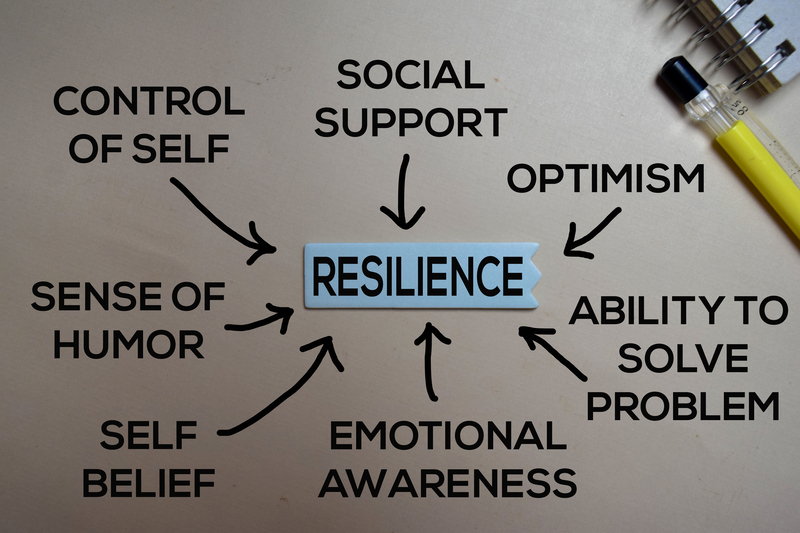
Entrepreneurship 3: What Makes Entrepreneurs: Born or Made?
Published: June 10, 2025
- Debunking the Entrepreneurial Myth
- The Myth of the “Natural Entrepreneur”
- What Research Says About Entrepreneurial Traits
- Motivation and Meaning Matter
- Learning to Be Entrepreneurial
- Intrapreneurship: Entrepreneurs Inside the System
- Case in Point: Bruce McLaren
- Born and Made: It’s Not Either/Or
- Closing Challenge
- Coming Soon: Post 4
- Also in this series
Debunking the Entrepreneurial Myth
What makes entrepreneurs succeed: are they born different, or is entrepreneurship something anyone can learn?
It’s a common debate with real implications. If entrepreneurs are born, then leadership, innovation, and risk tolerance are reserved for a few. But if they’re made, then entrepreneurial thinking can be cultivated with effort, adversity, and education.
This post explores what makes entrepreneurs who they are and why the answer isn’t as fixed as many think.
The Myth of the “Natural Entrepreneur”
The idea of the “born entrepreneur” is compelling and persistent.
It’s the story we hear again and again:
- The child who sold sweets in the schoolyard and grew up to found a global brand.
- The teenager who built a crude app in their bedroom and launched a tech company by 20.
- The rebellious university dropout who disrupted an entire industry “because they always knew they would.”
These stories are seductive. They paint entrepreneurship as destiny, a spark only a chosen few carry.
But there’s a problem: these narratives are almost always written in hindsight.
We connect the dots after the fact. Early curiosity or business-like behaviour gets reinterpreted as evidence of natural-born genius once someone becomes successful. Meanwhile, thousands of others with similar traits, ideas, or behaviours who didn’t build billion-dollar companies are forgotten. They’re never written into the story.
The truth is, most entrepreneurs don’t “always know.” They don’t wake up with a complete vision. Many don’t even start their first venture until their 30s or 40s. And many stumble into entrepreneurship after frustration, failure, or unexpected opportunity, not because it was in their blood.
“Entrepreneurs are made, not born.”
— Simpeh, 2011
Entrepreneurship doesn’t come from rare DNA.
It comes from deliberate choices, hard-won experience, and a willingness to learn through risk.
Anyone can become entrepreneurial. But first, we need to stop believing that if you weren’t “born with it,” you’ve missed your chance.
What Research Says About Entrepreneurial Traits
Researchers studying what makes entrepreneurs consistently identify common patterns, but not fixed formulas.
Key traits include:
- Internal locus of control – the belief that outcomes come from personal effort
- Tolerance for ambiguity – comfort with risk and uncertainty
- Resilience – especially shaped by hardship
- High achievement motivation – a drive to accomplish and create
“Most entrepreneurs have faced challenges in their early years…”
— Rojas, 2021
“Adversity is the soil in which entrepreneurial resilience grows.”
— Nofal et al., 2017
The traits that make entrepreneurs successful can be learned, encouraged, and refined. Through deliberate practice, feedback, and exposure to challenges, individuals can strengthen traits like resilience, creativity, and self-direction. Educational programs, mentoring relationships, and real-world experience all play a role in shaping entrepreneurial behaviours. Just as leaders are developed over time, so too are entrepreneurs, through moments of failure, growth, and course correction.
Motivation and Meaning Matter
Not all entrepreneurs are driven by money.
“Many successful entrepreneurs are not motivated by wealth, but by a need to prove something to themselves or to others.”
— Kets de Vries, 1985
Some seek freedom. Others crave impact. Many want to solve problems the world has overlooked. That inner drive, not their childhood aspirations, is what fuels them through failure, fatigue, and feedback.
This motivational force is central to what makes entrepreneurs persevere when others walk away.
Learning to Be Entrepreneurial
Entrepreneurial thinking can be taught. It’s not limited to natural-born risk-takers or instinctual leaders. It begins with a shift in perspective, learning to see problems as opportunities and constraints as creative fuel.
Through intentional education, coaching, and real-world exposure, people can learn to:
- Identify and validate new opportunities
- Evaluate and take calculated risks
- Build ventures or initiatives from the ground up
- Adapt to uncertainty and learn from failure
- Lead teams and ideas without needing formal authority
Entrepreneurial programs, whether in universities or accelerators, increasingly focus on teaching people how to think critically, act decisively, and build iteratively. Business simulations, lean startup methodologies, and pitch competitions offer structured practice in real-time decision-making.
In addition, mentorship plays a powerful role. Access to someone who has walked the entrepreneurial path, someone who can share lessons, offer encouragement, and ask the hard questions, can dramatically accelerate someone’s entrepreneurial development.
From business schools to startup incubators, what makes entrepreneurs isn’t magic: it’s mindset, skill, and repeated application, refined in the real world through trial and action.
Intrapreneurship: Entrepreneurs Inside the System
Not everyone needs to start a company to be entrepreneurial. Some of the most transformative innovations happen inside existing organisations, led by individuals who see possibilities where others see limitations.
“Intrapreneurs are dreamers who do.” — Pinchot III, 1985
These individuals think like founders but work within the system. They navigate legacy processes, inspire colleagues, and breathe new life into stagnant workflows. They build teams, develop new services, and create value often without formal authority or ownership.
Intrapreneurs aren’t just idea generators; they’re problem-solvers who take initiative, often absorbing risk in less visible but equally courageous ways. They question the status quo, explore overlooked markets, and champion efficiency in sectors where change is resisted.
Personally, this is the form of entrepreneurship I relate to most. Across my own career, I’ve found deep purpose and creative satisfaction not by starting something from scratch, but by reimagining what was already there. I’ve stepped into leadership by reshaping processes, launching new initiatives, and helping organisations see themselves differently from within. Intrapreneurship rewards vision, grit, and emotional intelligence, and its impact can ripple far beyond a single business unit.
Intrapreneurs are a powerful reminder that what makes entrepreneurs is not title, funding, or headlines, but action, ownership, and the courage to make meaningful change where it’s needed most.
Case in Point: Bruce McLaren
When asked to name famous entrepreneurs, many will think of Jobs, Musk, or Branson. But one who has long stood out to me is Bruce McLaren. His story resonates because it’s one of adversity turned into innovation—and identity forged through action.
Bruce McLaren was born in New Zealand and battled Perthes disease as a child, which left him with a limp for life. Yet instead of being sidelined, he used this challenge as fuel. He became a racing driver at a young age, eventually winning Grand Prix races and earning international recognition.
But it wasn’t just his skill behind the wheel that defined him – it was his vision. McLaren didn’t stop at driving. He studied engineering, understood the mechanics of performance, and relentlessly sought improvements. By 1963, he founded Bruce McLaren Motor Racing Ltd., a team that would revolutionise motorsport.

What makes Bruce McLaren an entrepreneur isn’t only that he founded a company. It’s that he redefined what a racing team could be. He brought together drivers, engineers, and designers into a united force of innovation. Under his leadership, McLaren Racing became not just competitive but iconic. And that legacy continues today.
He wasn’t born a founder. Bruce became one, shaping his environment, adapting to every limitation, and building something greater than himself.
McLaren’s journey reflects the essence of entrepreneurship: a mindset, honed through adversity and driven by the desire to make things better not just faster.
Born and Made: It’s Not Either/Or
So…what makes entrepreneurs? It’s both nature and nurture.
Some individuals may start with certain advantages: an enterprising mindset, early exposure to business, or supportive environments. But that’s only one part of the story. Far more entrepreneurs are shaped by the choices they make in response to challenge, opportunity, and change.
What separates entrepreneurial people from others is not what they were born with, but how they respond to life’s moments of uncertainty. Entrepreneurs choose to take risks when others hesitate. They decide to lead when they could follow. They build when there are no clear instructions.
Entrepreneurship is not a genetic condition. It is a discipline – a learned way of thinking and acting that gets stronger the more it’s practiced.
What matters most isn’t where you began, but that you keep going. Growth is the entrepreneur’s native state.
Closing Challenge
What has shaped your entrepreneurial mindset?
Think back. Was it a mentor? A failure? A problem you couldn’t stop thinking about?
The path to entrepreneurship starts with that reflection. Because being an entrepreneur isn’t something you’re born to do, it’s something you choose to become.
Coming Soon: Post 4
🧠 Why Most Entrepreneurs Don’t Work Alone
In Part 4 of the series, we’ll explore the essential, but often overlooked, role of partnerships in entrepreneurship. Whether it’s co-founders, collaborators, or key hires, no one builds something significant alone. Learn why surrounding yourself with the right people might be the most entrepreneurial move you make.
Also in this series
🧠 Post 1 – What Really Makes an Entrepreneur?
Redefining the word everyone uses, but few understand. This post explores how innovation, risk, and value creation define true entrepreneurship.
👉 Read it here
🧠 Post 2 – Innovation at the Core
Why innovation isn’t optional for entrepreneurs; and how it separates change-makers from managers.
👉 Read it here
🧠 Post 3 – Born or Made?
Debunking the myth of the “natural entrepreneur” and exploring the traits, experiences, and motivations that shape entrepreneurial success.
👉 This Article
🧠 Post 4 – Why Most Entrepreneurs Don’t Work Alone
No one builds something significant alone. Here we’ll explore the essential role of partnerships in entrepreneurship. Learn why surrounding yourself with the right people might be the most entrepreneurial move you make. 👉Coming soon.
📚 References – Post 3: Born or Made?
- Kets de Vries, M. F. R. (1985). The Dark Side of Entrepreneurship. Harvard Business School Press.
- Nofal, M., Helbich, M., & Văidean, V. L. (2017). Entrepreneurial Resilience and Adversity: The Role of Early Life Challenges in Shaping Entrepreneurial Mindsets. Journal of Entrepreneurship Education.
- Pinchot III, G. (1985). Intrapreneuring: Why You Don’t Have to Leave the Corporation to Become an Entrepreneur. Harper & Row.
- Rojas, F. (2021). Early Life Hardship and Entrepreneurial Drive: A Psychological and Sociological Analysis. Journal of Business Venturing Insights.
- Simpeh, K. N. (2011). Entrepreneurship Theories and Empirical Research: A Summary Review of the Literature. European Journal of Business and Management, 3(6), 1–8.







